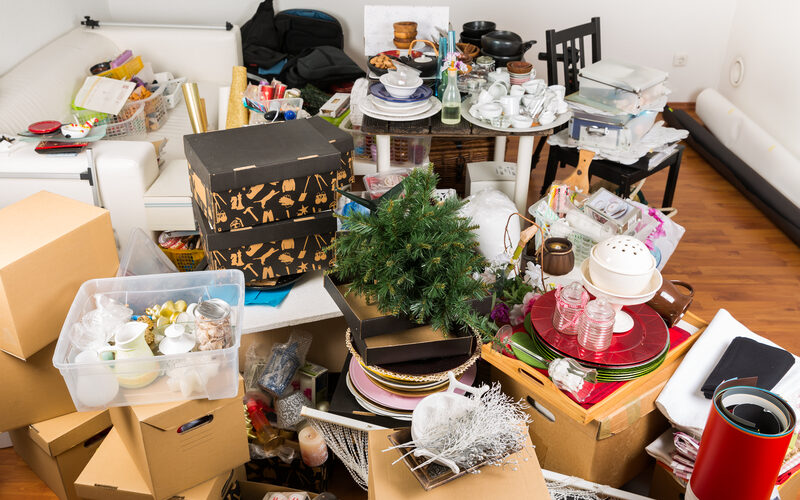Creating a harmonious and healthy home environment is essential for our overall well-being. Certain signs can indicate that our living space is less than optimal for our health. Here are some of those signs that a home needs work before it can be a healthy place to live.
Clutter
Clutter can negatively impact our mental and emotional well-being. An overly cluttered home environment can lead to feelings of stress, anxiety, and overwhelm. Piles of belongings, disorganized spaces, and excess clutter can create a sense of chaos that hinders relaxation and promotes feelings of unease. It can help to create an organizational system and regularly declutter the home. This can help free up mental and physical energy so you be more productive and focused. Developing a regular decluttering routine can create a sense of clarity, reduce stress and boost your mood. Organizing items into categories can help make the process easier to manage. Dedicate one area or room of the home for storage, so items are easy to find and out of sight. This will help create a sense of calm and reduce overwhelming feelings associated with too much stuff.
Pests
The presence of pests is a clear sign of an unhealthy home environment. Pests such as rodents, insects, and other critters can pose serious health risks. Mice often carry diseases and contaminate your food. Regularly inspect your home and its surroundings for any signs of pests, such as gnaw marks or droppings. Seal up any potential entry points and keep food stored in airtight containers. Keep your home clean and tidy, as clutter can provide shelter for pests. Clean up food messes immediately to avoid attracting rodents or insects. Call a reputable pest control company if there are signs of an infestation so that they can help you get rid of the pests in a safe and efficient manner. Make sure to follow their instructions after they have treated your home, such as keeping food properly stored and being diligent in regularly checking for signs of pests. By following these tips, you can prevent pests from becoming a problem in your home.
Mold
Mold growth in your home can have adverse effects on your health, particularly for individuals with respiratory conditions or allergies. Mold thrives in damp and poorly ventilated areas and can lead to respiratory symptoms, skin irritation, and other health issues. To prevent the growth of mold in your home, make sure that all areas of your house remain well-ventilated. Check for leaks and dampness regularly, particularly in basements or attics where moisture buildup is more likely to occur. Repair any cracks in the walls or ceiling and use a dehumidifier if necessary to reduce humidity levels. Make sure to clean up any standing water or spills immediately. Regularly inspect areas prone to mold, such as bathrooms and kitchens. Ensure that floors are dry after use and consider installing an exhaust fan to help keep moisture levels down. Fix any plumbing issues promptly in order to avoid water damage that may lead to mold growth. It is also important to regularly clean your home with a mixture of water, detergent, and bleach to reduce the presence of mold spores.
Your homes should be sanctuaries that promote our health and wellness, and taking steps to improve your living spaces can have a profound impact on your quality of life. Your home is not only where you live but also where you rejuvenate your mind, body, and spirit.
Did You Enjoy Reading This Article? Here’s More to Read: Foods That May Not Be as Healthy as You Think




